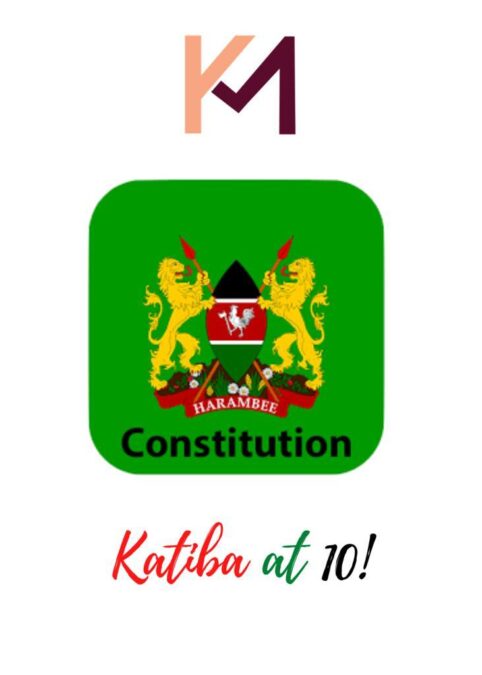We, the people of Kenya! The phrase sounds liberating, right? However, are we really enjoying our liberties in the new constitutional dispensation? What does it mean for Kenya to celebrate a decade of new constitutionalism?
27th August, 2020 marks the tenth anniversary of the promulgation of the 2010 Constitution and the birth of the Second Republic. The new Constitution was expected to guarantee human rights to all, freedom from discrimination and change the governance system for the good.
Article 1 of the Constitution vests sovereign power in the people of Kenya. It also highlights the relevance of national values and principles of governance, including the rule of law, democracy, public participation, human rights, equality, social justice, accountability and sustainable development.
It is often argued that the theory and practice of constitutionalism is a key element to democratization and good governance to many countries of the world. In some cases, constitutionalism ought not to be driven from the perspectives of the party in power ideology or on basis of the ideals of those presiding over state powers and functions. From the above argument, it can be contested that enacting good laws is a fundamental aspect to sustain the theory and practice of constitutionalism.
With the ongoing public debate on referendum calls for review of the Constitution, we need to interrogate ourselves to know whether there is an actual need for Constitutional review and what areas to review. Some of the successes of the new Constitution include; national and county level drive for gender equality, accountability measures within government agencies, promotion of affirmative action groups’ participation, devolution system of governance which has bridged the gap of government functions and its citizenry and the comprehensive Bill of Rights.
However, there has been lack of or inadequate efforts by the arms of government to ensure that the Constitution is implemented to the letter. For example, actualization of the two-thirds gender principle. Notably, the Constitution of Kenya readily recognizes women by way of creation of special seats for women that resulted in the election of forty-seven (47) women into the National Assembly. Furthermore, the Constitution in Article 27(8) requires that the State shall take legislative and other measures to implement the principle that not more than two-thirds of the members of elective public bodies shall be of the same gender. To date this provision has not been implemented. Is this provision attainable?
As a country, we need to review and enact legislation required to achieve and implement the existing gaps effectively. We believe that the driving force behind any constitutionalism in Kenya should be the people, in order to ensure legitimacy in the governance process. Reasonably, one cannot dismiss the claims that constitutionalism should draw strength from the citizenry but this is not what often happens in Kenya.
It is imperative to question ourselves on how much has been achieved so far. We cannot circumvent the fact that constitutional effectiveness and its implementation are closely knit together. Therefore, We The People, need to be more aware and involved when called upon. Let’s engage in the public participation fora, conduct civic education where necessary and conduct knowledge management on implementation of the constitution.
This Constitution is expected to act as a blue print for strengthening democracy in the country. As we enter a new decade of constitutional implementation, let us remember that “After climbing a great hill, one only finds that there are more great hills to climb”, Nelson Mandela. Let us keep striving to achieve constitutional implementation in its totality as we push for the Vision 2030.
The writer engages in independent public policy analysis.
For more information or clarification kindly contact muganda@kmadvocates.net
Disclaimer: This article is meant for general use only and should not be relied upon solely without seeking legal advice first.


Recent Comments